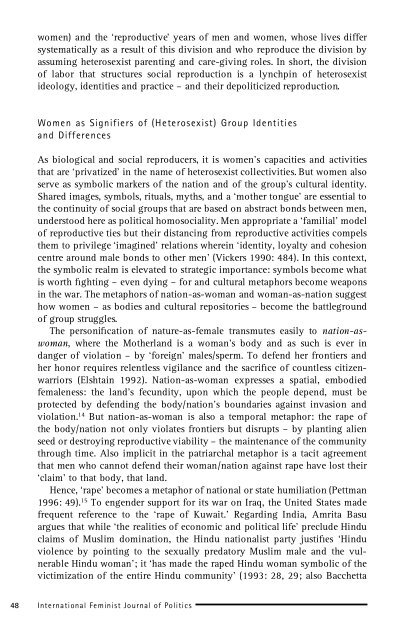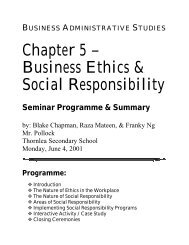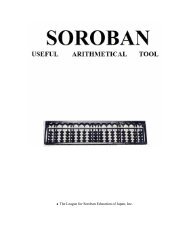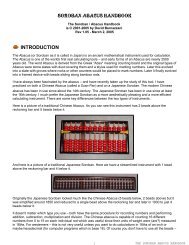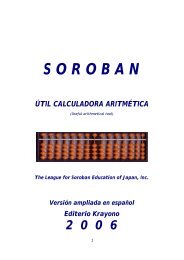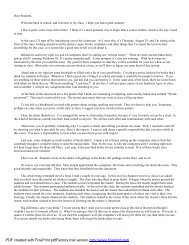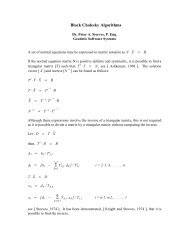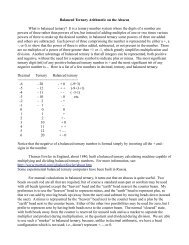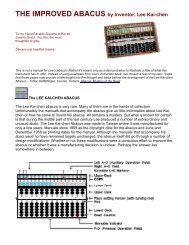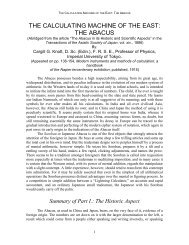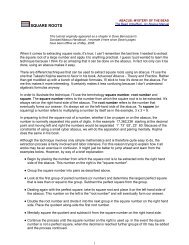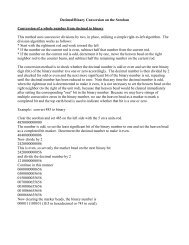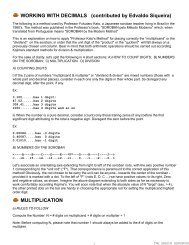Sexing Political Identities-Nationalism as Heterosexism.pdf
Sexing Political Identities-Nationalism as Heterosexism.pdf
Sexing Political Identities-Nationalism as Heterosexism.pdf
You also want an ePaper? Increase the reach of your titles
YUMPU automatically turns print PDFs into web optimized ePapers that Google loves.
women) and the ‘reproductive’ years of men and women, whose lives differ<br />
systematically <strong>as</strong> a result of this division and who reproduce the division by<br />
<strong>as</strong>suming heterosexist parenting and care-giving roles. In short, the division<br />
of labor that structures social reproduction is a lynchpin of heterosexist<br />
ideology, identities and practice – and their depoliticized reproduction.<br />
Women <strong>as</strong> Signifiers of (Heterosexist) Group <strong>Identities</strong><br />
and Differences<br />
As biological and social reproducers, it is women’s capacities and activities<br />
that are ‘privatized’ in the name of heterosexist collectivities. But women also<br />
serve <strong>as</strong> symbolic markers of the nation and of the group’s cultural identity.<br />
Shared images, symbols, rituals, myths, and a ‘mother tongue’ are essential to<br />
the continuity of social groups that are b<strong>as</strong>ed on abstract bonds between men,<br />
understood here <strong>as</strong> political homosociality. Men appropriate a ‘familial’ model<br />
of reproductive ties but their distancing from reproductive activities compels<br />
them to privilege ‘imagined’ relations wherein ‘identity, loyalty and cohesion<br />
centre around male bonds to other men’ (Vickers 1990: 484). In this context,<br />
the symbolic realm is elevated to strategic importance: symbols become what<br />
is worth ghting – even dying – for and cultural metaphors become weapons<br />
in the war. The metaphors of nation-<strong>as</strong>-woman and woman-<strong>as</strong>-nation suggest<br />
how women – <strong>as</strong> bodies and cultural repositories – become the battleground<br />
of group struggles.<br />
The personication of nature-<strong>as</strong>-female transmutes e<strong>as</strong>ily to nation-<strong>as</strong>woman,<br />
where the Motherland is a woman’s body and <strong>as</strong> such is ever in<br />
danger of violation – by ‘foreign’ males/sperm. To defend her frontiers and<br />
her honor requires relentless vigilance and the sacrice of countless citizenwarriors<br />
(Elshtain 1992). Nation-<strong>as</strong>-woman expresses a spatial, embodied<br />
femaleness: the land’s fecundity, upon which the people depend, must be<br />
protected by defending the body/nation’s boundaries against inv<strong>as</strong>ion and<br />
violation. 14 But nation-<strong>as</strong>-woman is also a temporal metaphor: the rape of<br />
the body/nation not only violates frontiers but disrupts – by planting alien<br />
seed or destroying reproductive viability – the maintenance of the community<br />
through time. Also implicit in the patriarchal metaphor is a tacit agreement<br />
that men who cannot defend their woman/nation against rape have lost their<br />
‘claim’ to that body, that land.<br />
Hence, ‘rape’ becomes a metaphor of national or state humiliation (Pettman<br />
1996: 49). 15 To engender support for its war on Iraq, the United States made<br />
frequent reference to the ‘rape of Kuwait.’ Regarding India, Amrita B<strong>as</strong>u<br />
argues that while ‘the realities of economic and political life’ preclude Hindu<br />
claims of Muslim domination, the Hindu nationalist party justies ‘Hindu<br />
violence by pointing to the sexually predatory Muslim male and the vulnerable<br />
Hindu woman’; it ‘h<strong>as</strong> made the raped Hindu woman symbolic of the<br />
victimization of the entire Hindu community’ (1993: 28, 29; also Bacchetta<br />
48 International Feminist Journal of Politics


